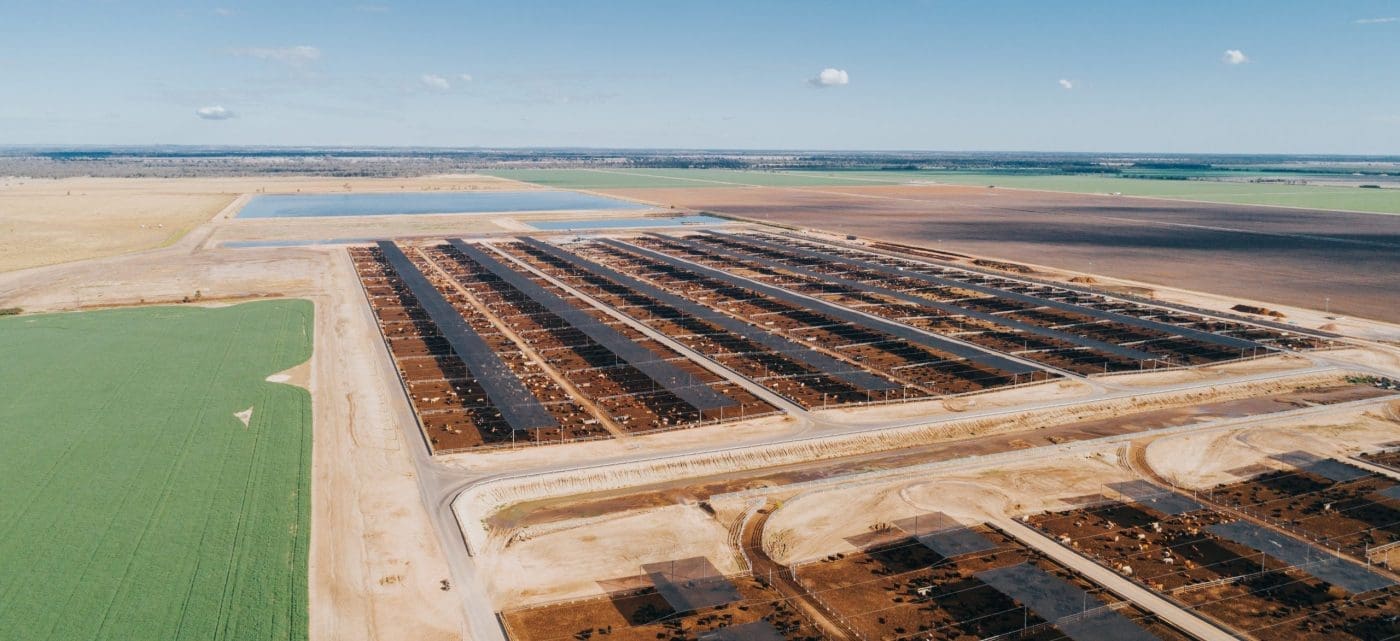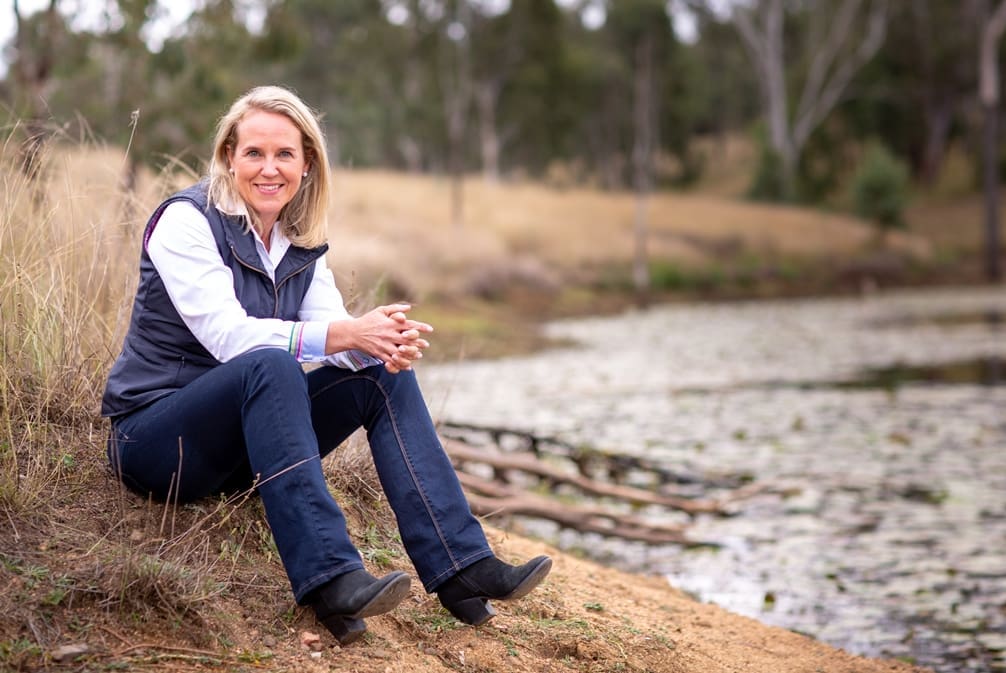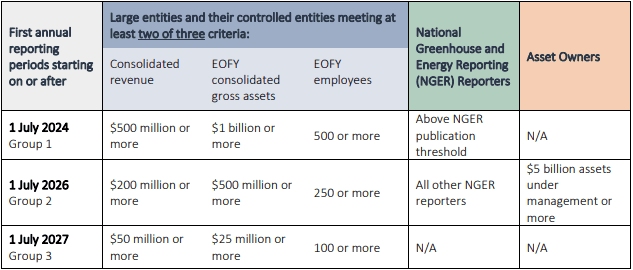NEW laws requiring companies to report their emissions to the Government will cover a surprising number of cattle companies, with details still unclear on what will need to be reported.
The issue was highlighted at last week’s Feeder Steer School in Armidale by outgoing Australian Lot Feeders’ Association chair Barb Madden – who said her family’s Smithfield Cattle Company will need to report all its emissions to the Government by 2027. Smithfield owns two feedlots in Queensland, which came in at number eight on Beef Central’s top 25 lot feeders in 2023.
Last year, the Senate passed the laws known as “climate-related financial disclosures” – which will be rolled out in groups over the next three years.
The laws have been controversial with both the opposition and industry raising concerns about the undue cost it will put on the industry. The Government says the laws will make Australia more attractive to investors who can help transform the country into having a “net zero” economy.
What will they have to report?
Companies who fall under the reporting rules will need to report all of their direct emissions (scope 1 and 2), and their emissions from businesses further up the supply chain (scope 3).
Scope 3 emissions have been the most controversial for opponents of the legislation, with both the Coalition and the industry calling for the requirement to be scrapped due to the financial burden it will be put on small producers. Similar legislation in the United States has not included scope 3.
The scope 3 emissions requirements are set to come into play in a company’s second year of reporting.
Beef Central asked the Government how it plans to legislate the scope 3 requirements, whether it will be modelled or whether it will require individual producers to send in their carbon footprint when they sell their cattle. We also asked what the Government’s accepted methodology is for reporting emissions from land and livestock operations.
Readers will be updated if these questions are answered.
Some banks who are working towards their own voluntary net zero targets have been using carbon calculators to gauge the footprint of producers. Several products are available to the industry using what is known as the SB GAF tool.
The Government last year announced a $7m funding package to develop a reporting standard.
How many cattle companies will have to report?
Beef Central asked both the agriculture minister Julie Collins and Treasurer Jim Chalmers how many agricultural businesses will fall under the laws – a question neither has addressed.
The reporting requirements are set to be phased in through three stages (as illustrated below).
Given that Smithfield falls into group three, it is likely that a lot of other cattle companies will fall into the category, most likely satisfying the revenue and asset value requirements – other service industries like livestock transport and veterinary suppliers may also be covered.
However, the laws are likely to hit the supply chain quicker than group three, with some of the beef industry’s biggest customers needing to start their reporting next financial year. Processors, supermarkets and banks will almost certainly to fall into group two.
How much will it cost?
Nationals leader David Littleproud has suggested that compliance with the laws $1.3 million/year/business – which would most likely be shared across the supply chain. He suggested the compliance costs will be passed onto small farm businesses.
Beef Central asked the treasurer if these figures are accurate.
The reporting requirements are likely to have a big cost on the industry as it has been suggested that collecting the information needed will require an additional employee or a team of employees.
Coalition plans to scrap climate disclosures
The Coalition says it plans to scrap the mandatory climate disclosures if it is elected this year, with Nationals leader David Littleproud being one of the most vocal critics.
“The Bill is a compliance green tape time bomb, with Treasury’s own figures estimating this measure will cost $1.3 million per year, per business, to comply with,” he said in a recent press release.
“Compliance costs will be passed onto small businesses. If you are a farmer who banks with a big company, or a manufacturer buying ingredients from a larger entity, the changes will directly impact you.
“This unfair and bureaucratic burden comes despite Australian farmers already having some of the best land management practices in the world. Given that there is currently no standardised method for calculating land and livestock emissions in Australia, how can industry have confidence in the proposed reporting system?”
What is industry saying about it?
The Red Meat Advisory Council raised similar concerns in a submission to bill, saying it will place undue pressure on small farm businesses.
“While industry has been able to transparently report independently calculated national supply chain emissions, extending this to an individual business is extremely challenging,” the submission said.
“Most processors, medium-to-large feedlots and pastoral groups could meet the criteria outlined in the CRFD consultation information. However, unlike other parts of the economy, there are many barriers and a lack of available and timely data when it comes to accurately measuring business-level emissions.
“Accurate accounting and reporting of on-farm emissions is still a difficult, uncertain and technical process.”
Cattle Australia has been raising issues with emissions reporting since the organisation was formed. It last year set up a “methane roundtable” with industry partners to work out how the industry could better tackle pressure about methane emissions.




I always feel that taxes should be imposed on the people who cause the problem. Given that humans fart and defecate about 30 percent of the worlds methane, why not have an emissions tax on the toilet. I think the technology is there to have underpants that collect methane output from gases. Toilets can be fitted with scales. From this people could submit comprehensive reports to Government on emissions, and be taxed accordingly! The toilet Tax! Imagine the vegans and the email classes will be paying the most Taxes. If that doesn’t slow down emissions we just need a few more wars they help slow down emissions!!
There is little doubt that this is the thin edge of the wedge. Once there is a system in place the noose will tighten and there will be increasing environmental based charges made on the feedlots suppliers of feeder cattle and the grass raised livestock. As always the initial supplier the livestock breeder will be the only link in this chain that has no ability to pass on costs arising from the impost of CARBON TAXES, on the industry. Feed suppliers, livestock carriers and all sections of the livestock industry will be subject to these taxes, the family farm will not survive as a result,
Beef Central politely reminds readers wishing to add comments on articles that we have strict rules around the use of full and proper names identifying the author. These requests appear in the comment submission panel, as well as on our “Reader comments – rules of engagement” page. Failure to comply will see submitted comments overlooked for publication. Editor
If the “standard” pushes along the supply chain small producers will be reporting this year.
The standard should be really simple, like how much fuel you consume and how many animals you have. What happens with cropping? Is it neutral? What happens with the trees on my freehold property the QLD Government stole my carbon credits for? If I can’t count them I am negative – if I can, I gave a massive carbon surplus.
Beef Central politely reminds readers wishing to add comments on articles that we have strict rules around the use of full and proper names identifying the author. These requests appear in the comment submission panel, as well as on our “Reader comments – rules of engagement” page. Failure to comply will see submitted comments overlooked for publication. Editor
What a load of revenue collecting BS
United industry message needs to be loud & clear … just say NO.
Not going it. Go away.
This idea of scope 3 emissions is pretty absurd in itself.
Even if you ignore the definition of scope 3 with is all upstream AND downstream emissions and only say supplier emissions.
That would mean everyone you interact with as part of your business will have to supply details. this will also include all forms of government if you interact with them. If you supply food for workers then you have supermarkets requiring to supply their emissions for the food you bought. Accounts, Solicitors, stock and station agents. Everyone supplying the business with a service or goods.
You can quickly see how absurd it is, but it is not unexpected to see such absurdity coming from government.
https://cer.gov.au/schemes/national-greenhouse-and-energy-reporting-scheme/about-emissions-and-energy-data/emissions-and-energy-types
“Scope 3 emissions: broader indirect emissions
Scope 3 emissions are indirect emissions other than scope 2 emissions. They occur outside of the boundary of your organisation as a result of your actions.
Scope 3 emissions may occur:
upstream, such as the emissions generated in the extraction and production of fossil fuels
downstream, such as the emissions from transport of your products.”
Fortunately, sanity will prevail with a change of government, and this ill-conception will be scrapped.
With respected meteorologists stating consistently that CO2 does not drive the climate, with plenty of evidence that the rules governing the measurement of total farm emissions being hopelessly loaded to give inaccurate results, and the fact that ruminants can only recycle what is already in the atmosphere, its time for our political class to take a fresh look at these proposals before we are all sent to the wall to achieve nothing.
The Group 3 Gross Assets trigger of $25 million is totally out of whack with the matching revenue and employee triggers. To match the $50 million revenue and 100 employees thresholds, the gross assets trigger should be $250 million, not $25 million. Someone has got things wrong by an order of magnitude.
Easy if you are a highly paid bureaucrat chained to your desk in Canberra.